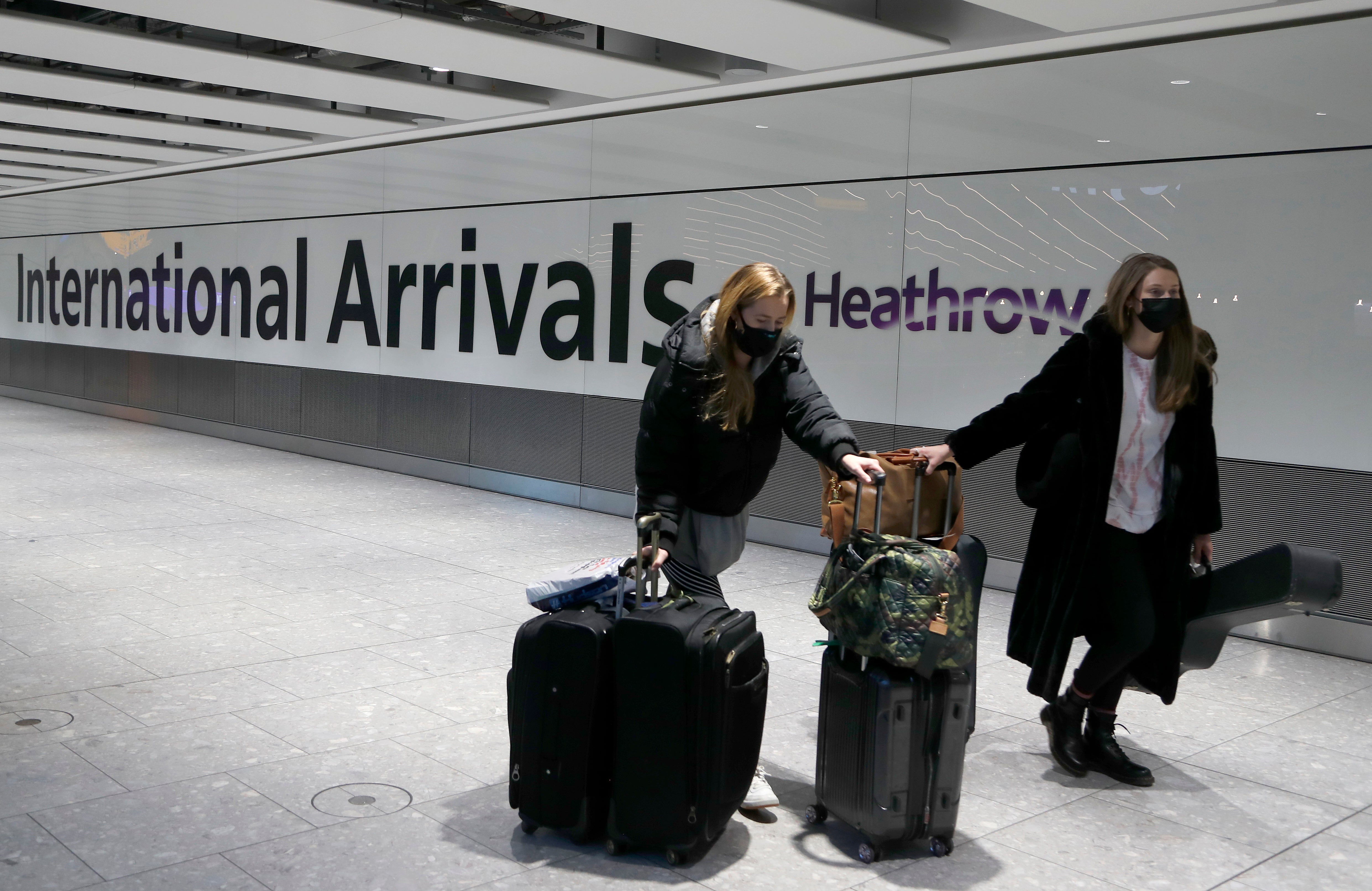Only full quarantine for travellers will prevent new variants entering UK, Sage warns
Some travellers will be expected to quarantine for at least 10 days later this month

Your support helps us to tell the story
From reproductive rights to climate change to Big Tech, The Independent is on the ground when the story is developing. Whether it's investigating the financials of Elon Musk's pro-Trump PAC or producing our latest documentary, 'The A Word', which shines a light on the American women fighting for reproductive rights, we know how important it is to parse out the facts from the messaging.
At such a critical moment in US history, we need reporters on the ground. Your donation allows us to keep sending journalists to speak to both sides of the story.
The Independent is trusted by Americans across the entire political spectrum. And unlike many other quality news outlets, we choose not to lock Americans out of our reporting and analysis with paywalls. We believe quality journalism should be available to everyone, paid for by those who can afford it.
Your support makes all the difference.Only a complete pre-emptive closure of UK borders or placing all overseas travellers into quarantine on arrival in the UK will stop the spread of new variants of coronavirus, government scientists have warned.
In a new paper released on Friday by the Scientific Advisory Group for Emergencies (Sage), the experts said it was likely that by the time a new variant of the virus was detected anywhere in the world, it would already be in the UK due to the extent of international travel.
The scientists warn: “Evidence from the continued spread of the South African and UK variants suggests that reactive, geographically targeted travel bans cannot be relied upon to stop importation of new variants once identified, due to the time lag between the emergence and identification of variants of concern, and the potential for indirect travel via a third country.”
It added: “No single intervention, other than a complete, pre-emptive closure of borders, or the mandatory quarantine of all visitors upon arrival in designated facilities, irrespective of testing history, can fully prevent the importation of cases or new variants.”
The government has confirmed it plans to force travellers from specific countries to quarantine for 10 days in designated hotels.
It is not planning to quarantine all incoming passengers, only those from countries on the travel ban list. The measures will come into effect on February 15.
The Sage paper said an analysis by the World Health Organisation “suggests that partial travel bans only have the potential to delay spread and peak by a few weeks or months. Extensive travel restrictions (over 90 per cent of journeys stopped) would be required to meaningfully affect the magnitude of an epidemic.”
It also said that travel bands could have “substantial social and economic implications” and were appropriate only where incidence of the virus was already low and lockdown restrictions had been relaxed or where there is a significant variant detected.
It said that quarantine with a negative PCR test had the most substantial chance of reducing the risk of infected people bringing the virus into the UK.
On Thursday evening the Department of Health and Social Care issued notice to hotels near ports and airports, asking for proposals on how they could support mandator quarantine before the government takes out formal contracts.
Further details will be set out next week on how passengers will be able to book into the designated accommodation facilities.
The new policy comes amid concern over the ability of the coronavirus to mutate after the discovery of the more transmissible variant first identified in the southeast of England, which triggered the surge in cases leading to the latest lockdown.
There has also been a variant of the virus first detected in South Africa which has now travelled to the UK with more than 100 cases including 11 that are not linked to travel, suggesting the variant has spread between people.
Door to door testing across affected postcodes has been launched to try and stay on top of the variant, which has been shown to resist some antibody plasma used to treat Covid patients.
The government has brought in tougher travel restrictions for those leaving and coming to the UK with increased police enforcement at the border.
A Department of Health and Social Care spokesperson said: “Throughout the pandemic, the government has put in place proportionate measures, informed by the advice of scientists, and that has led to some of the toughest border regimes in the world.
“It is currently illegal to go on holiday, and passengers travelling to the UK must provide proof of a negative test before they travel, and self-isolate on arrival. With increased police presence at airports and more physical checks at addresses to make sure people are self-isolating, we are taking decisive action.
“We are now working at pace to secure the facilities we need to roll out managed quarantine for British nationals returning home from the most high-risk countries, and are rightly engaging with representatives from the hospitality, maritime and aviation industry, and learning from our friends around the world. In the face of new variants, it is important that the government continues to take the necessary steps to protect people and save lives.”



Join our commenting forum
Join thought-provoking conversations, follow other Independent readers and see their replies
Comments